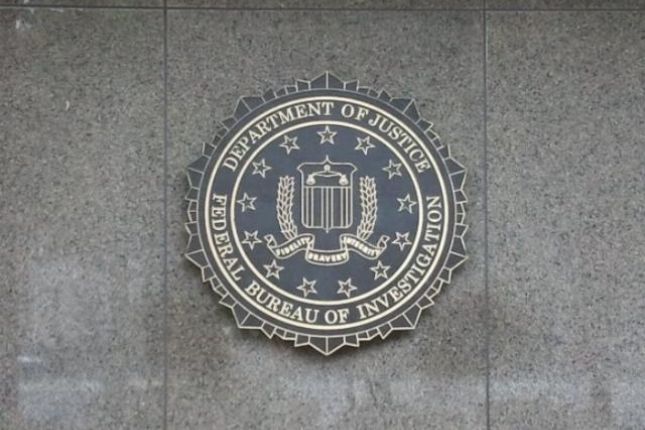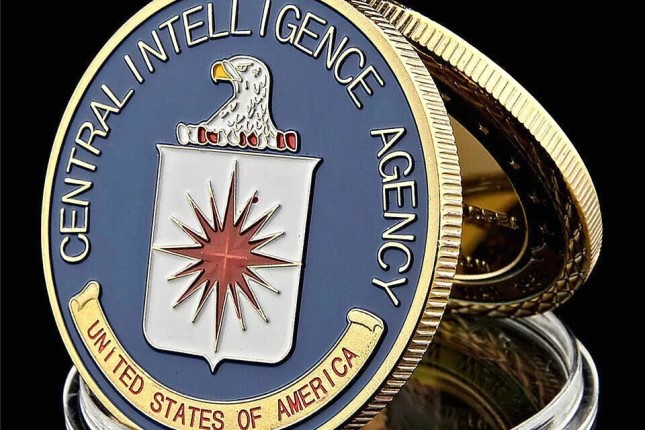Much of this activity appears to have been politically motivated, with a particular focus on Trump-supporting conservatives.
An ongoing investigation by the House Judiciary Committee into financial surveillance in the U.S. reveals that these agencies have “abused [their] access to Americans’ sensitive financial information.” Alarmingly, the investigation also exposes the government’s surveillance efforts as both “warrantless” and “widespread.”
According to a Dec. 6 interim report from the House Judiciary Committee, the FBI has been using federal laws like the Bank Secrecy Act, “often without legal process,” to conduct these invasive operations. The committee reviewed over 48,000 “nonpublic documents,” revealing that the FBI has been scouring private financial data to potentially target, identify, and label certain Americans as threats to national security.
A May 1 press release from the office of Rep. Greg Steube (R-FL) states that Bank of America, Chase, U.S. Bank, Wells Fargo, Citi Bank, Truist, Charles Schwab, HSBC, MUFG, PayPal, Santander, Standard Chartered and Western Union are all under investigation for ties to an FBI and FinCEN plot to spy on Americans’ private banking transactions without first obtaining a warrant.
It is important to note that financial data are not just numerical. They can be used to “tell a person’s story, including one’s religion, ideology, opinions, and interests.’” For example, the FBI has used “sweeping search terms like “‘MAGA’ and ‘Trump’” and has even requested searches for purchases like “firearms or religious texts as indicators of ‘extremism.’” The searches are meant to build a behavioral profile, one that could end up putting the individual on unwarranted watchlists, including lists that track potential domestic terrorists.
The surveillance seems to have begun following the Jan. 6 Capitol Hill protests, according to a June 12 letter from representatives Jim Jordan and Thomas Massie to JP Morgan Chase CEO Jamie Dimon. It then metastasized to much more.
According to the letter, retired FBI Supervisory Intelligence analyst George Hill disclosed cooperation between Bank of America (BoA) and the FBI referencing the sharing of Americans’ financial activities and transactions “without any legal process.” Bank of America (BoA) provided the FBI–voluntarily and without any legal process–with a list of individuals who made transactions in the Washington, D.C. metropolitan area with a BoA credit or debit card between January 5 and January 7, 2021.
Hill’s testimony led House members to broaden the scope of their investigation into the government’s weaponized financial surveillance. His testimony was “later corroborated by his former supervisor, Special Agent-in-Charge of the Boston Field Office, Joseph Bonavolonta.”
FBI’s Financial Surveillance “Widespread and Virtually Unchecked”
The FBI has allegedly “manipulated the Suspicious Activity Report (SAR) filing process” to conduct its law enforcement activity “without legal process.” In other words, by manipulating its access to financial institutions to circumvent laws that would protect consumers, the FBI has extended its reach into “information on certain persons or activities it considers ‘suspicious.’”
Per the report, The FBI circumvents this process by tipping off financial institutions to “suspicious” individuals and encouraging these institutions to file a SAR — which does not require any legal process — and thereby provide federal law enforcement with access to confidential and highly sensitive information. In doing so, the FBI gets around the requirements of the Bank Secrecy Act (BSA), which, per the Treasury Department, specifies that “it is ... a bank’s responsibility” to file a SAR whenever it identifies “a suspicious transaction relevant to a possible violation of law or regulation.”
Banks are strongly incentivized to respond to FBI and FinCEN requests because non-compliance could incur stiff civil penalties “that could total hundreds of millions of dollars.”
According to the report, the FBI would provide “lists of people to financial institutions that it views as ‘generally suspicious’ on the front end,” which would then, with zero criminal evidence, prompt those institutions to file SARs reports, a “violation of the Fourth Amendment’s requirements of particularity and probable cause.” The FBI violated the rights of “hundreds of Americans, if not more, without any clear criminal nexus,” according to Peter Sullivan’s transcribed interview.
Most concerning is the fact that the government has unprecedented and widespread access to Americans’ private financial data. “According to FinCEN, at least 25,000 authorized users across federal, state, and local government have warrantless access to these filings, known as BSA data, through the FinCEN Query program.” In 2023 alone, government officials ran 3,362,735 searches with the program. Furthermore, approximately 27000 federal officials have access to BSA data through the Agency Integrated Access (AIA) program that allows certain federal agencies to download the data onto their own systems. In total, according to FinCEN, “472 federal, state, and local law enforcement, regulatory, and national security agencies have access to BSA reports.”
Regarding FinCEN access, one of the more startling revelations was the fact that “an unauthorized representative appeared to have gained access to a FinCEN program. Allegedly, someone from Bank of America “was able to register with FinCEN as BoA’s FinCEN 314(b) contact.” It raises an important question — whether “FinCEN is adequately protecting the sensitive financial data under its control and properly screening and vetting all individuals with access to this information.”
The report also mentions advances in “new technologies like digital ID and the use of AI,” which allow the government to efficiently and automatically monitor and record financial transactions. The report cites a white paper from the Bank Secrecy Act Advisory Group (BSAAG), the group that advises the Treasury Department on BSA issues.
The white paper discusses the ways “biometric information and digital signals enabled by the use of digital ID could be repurposed for ‘broader KYC (Know-Your-Customer) and transaction monitoring purposes.’” A.I. can be dangerous because of input bias, “with the documented abuses of A.I. technology already mounting.”
During a March 2024 hearing, Rep. Jordan opined on the frightening evidence of weaponized government surveillance. He referenced a “secret portal” inside the “Orwellian” Domestic Security Alliance Council (DSAC).
Jordan stated that the FBI and the Department of Homeland Security use the portal to work with “650 of the largest companies in the world” to target Americans. He explained, Any American who opposes firearm legislation, the easing of immigration restrictions, and COVID mandates is someone banks should be watching because again, they might be an extremist. ... It actually gets worse. The federal government and banks also use what they call merchant category codes to flag Americans who shop at places like Bass Pro shops and Cabela’s. ... This is scary where things are headed. We’ve seen the censorship, now we see what’s happening with big banks and big government relative to your financial data. All this being done with no process, no warrant, no notification to the customer that the banks are actually supposed to serve. Big government is not supposed to use big tech to censor Americans and big government shouldn’t be working with big banks to target Americans for behavior that is legal and constitutional.
Source: American Thinker.
































